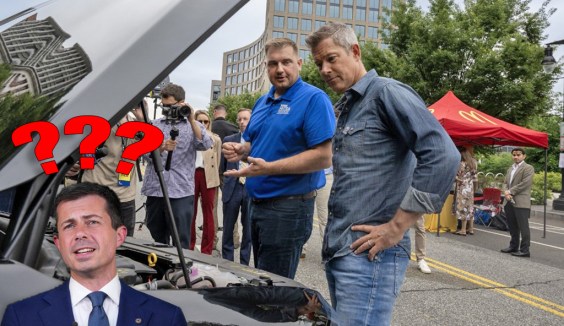Bad parking policy can greatly harm a city. Too much parking makes walking impractical and uncomfortable. It also erodes the tax base, as the map of downtown Detroit we posted last week made painfully clear. Meanwhile, cities that manage the parking supply wisely have bolstered their downtowns, as we've seen in the cases of Pittsburgh and Denver.
That's why it's exciting to read that Cincinnati will reform its mandatory parking requirements. Randy Simes of Urban Cincy reports the city is making some smart changes:
Cincinnati Mayor Mark Mallory (D) has approved an amendment to the city’s zoning code that eliminates parking requirements for many residential developments, and substantially reduces them for others.
The ordinance, signed on August 7, tosses out the city’s existing minimum parking requirements within the zoning code’s Downtown Development Overlay Districts, which cover the central business district and historic Over-the-Rhine.
Under the new regulations any residential development with 20 or fewer housing units would not have to provide any parking, while those with more than 20 units would have to provide .75 spaces per housing unit above 20. That means a development with 32 housing units would only need to provide nine parking spaces.
The approved ordinance also calls for the “deregulation of minimum parking requirements in other neighborhoods through the establishment of Urban Parking Overlay Districts in areas to be determined by Council.”
Simes says the policy discussion began with a post on Urban Cincy. Congrats to the volunteer writing team at this blog, and to the leadership of Cincinnati.
Elsewhere on the Network today: The Political Environment says Wisconsin is preparing to compound the problems created by its lenient drunk driving laws by raising the speed limit. Urban Milwaukee explains the process that led to the city's first parklet. And Greater Greater Washington says widening highways to add bus service is bad regional transit planning.






